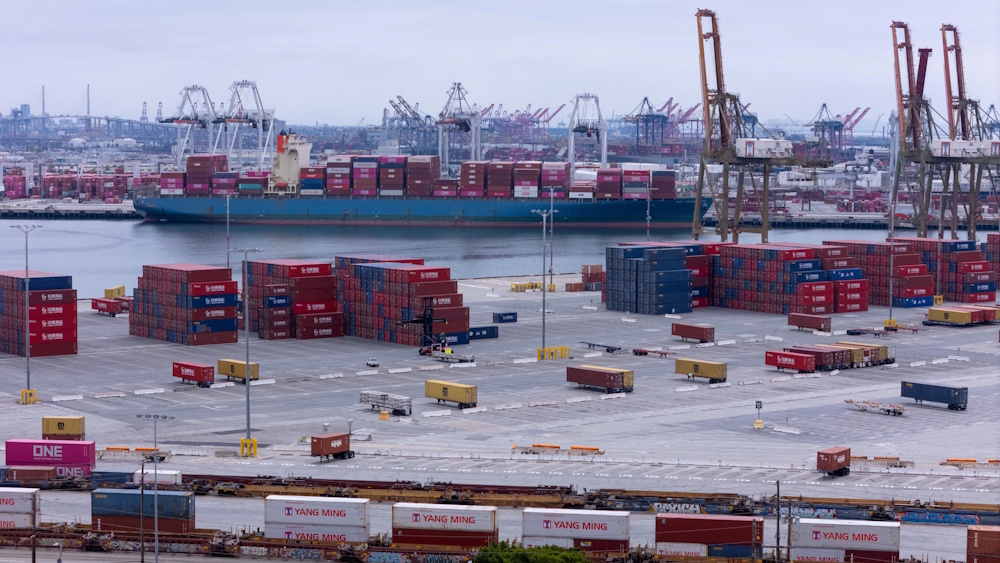
Financial markets commenced the week with optimism, responding positively to the weekend’s reports indicating that trade discussions between the United States and China proceeded without incident. Just weeks earlier, Trump had indicated the possibility of imposing a 100% tariff on Chinese exports and suggested he might cancel a meeting with Chinese President Xi Jinping. The meeting is scheduled to occur this week. If all of this appears to be a repetition of a narrative we’ve encountered previously, yet no one can quite recall the conclusion, it is due to the fact that it never truly reached an end. The recent intensification of tensions between Trump and Xi emerged following Beijing’s declaration of intentions to impose restrictions on the export of rare-earth minerals, which are essential components for a variety of electronic devices.
However, this is not a recent development — China, which dominates the global supply of rare earth minerals, initiated restrictions on foreign access to these resources more than three decades ago. As the demand for China’s rare earths has risen, so too have the measures implemented to regulate the purchasing of these resources by other nations. Following discussions with Chinese trade negotiators in Malaysia over the weekend, US Treasury Secretary Scott Bessent expressed his expectation that the forthcoming high-stakes meeting between Trump and Xi may lead to “some kind of deferral” regarding rare-earth export controls. US Trade Representative Jamieson Greer, who has spearheaded discussions on trade with China alongside Bessent, indicated that the Treasury secretary conveyed to Chinese negotiators during their most recent meeting, “This is the last time we want to be talking about rare earths.” “Regrettably, this will not be the final occasion they wish to discuss the matter,” Greer informed.
During the last in-person meeting between President Donald Trump and Chinese President Xi Jinping in 2019, the issue of rare earth exports emerged as a significant point of contention. He is correct. “Some kind of deferral” indicates that Xi retains the ability to leverage access to rare earths against the United States whenever he is dissatisfied with Trump’s actions. When Beijing inevitably announces new, intensified export controls on rare earths, it is probable that Trump will respond by threatening to impose higher tariffs. However, it remains uncertain whether Trump or Xi will capitalize on the foundational work laid by their representatives. Trump has a recent history of provoking tensions, undermining the diplomatic achievements that Bessent and Greer attained with China. For example, merely weeks following the establishment of an agreement that led to markedly reduced tariffs between the two nations, Trump imposed export controls on chip design software directed towards China. Those restrictions were subsequently removed. The more optimistic perspective suggests that a significant breakthrough regarding rare earths or other matters may emerge from the upcoming meeting between Trump and Xi this week. However, it remains challenging to regard any advancements between Trump and Xi with seriousness, given that both parties have accused the other of breaching previous agreements. Recently, Greer initiated an inquiry to assess China’s compliance with the stipulations of a trade agreement negotiated by Trump during his initial term.
Under the terms of that agreement, China pledged to enhance its acquisitions of American goods by $200 billion by the conclusion of 2021. Nonetheless, it significantly underperformed relative to that benchmark. While Trump aimed to de-escalate tensions with China, a persistent adversary, he simultaneously heightened friction with Canada, one of America’s key allies and neighboring countries. In reaction to an advertisement commissioned by Ontario that included excerpts from an anti-tariff address delivered by former President Ronald Reagan in 1987, Trump issued a warning regarding a potential increase in tariffs on Canada, which stands as America’s second-largest trading partner, by an extra 10%. Canadian Prime Minister Mark Carney has exhibited caution in responding to the tariffs imposed by Trump on his nation, yet this does not imply that he will refrain from taking action. Following Trump’s suspension of trade discussions due to the tariff advertisement, Carney remarked : “It doesn’t pay to be upset. Emotions do not propel one very far.” Regardless, should Trump persist in alienating his allies, he jeopardizes increasing America’s economic dependence on China.

